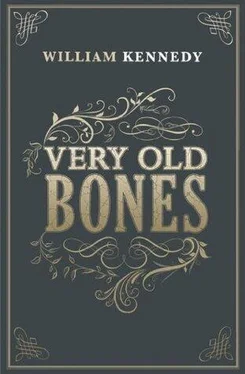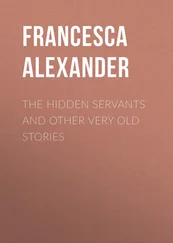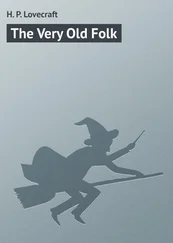We were a family soon to disappear from this form, from these chairs, from this place. The diaspora would be complete in, what, four, three, two years? Barring a miracle, Peter would die in the months ahead. Molly could go on for years, but even with a housekeeper (and she could afford one) she wouldn’t stay here alone. And Giselle and I? Ah, now, there’s a rub.
Whether or not we would now stay here for an extended time was a new question. But she was responsible for my being here (I see no need to run through the tissue of causation) and therefore obliquely responsible as well for this day of reunification, this time of our dawning into unity (as Keats put it), if indeed it was unity, if indeed it was dawning; and perhaps she would also be responsible for us reordering the house to accommodate a modern married couple, with nursery. The very thought of these things was so exotically afield of my present consciousness that I could only look at it all as a freakish turn of fate. The lives we had known for five years were about to be superseded. But by what?
My personal agenda was to finish the book on Peter’s art, and finish also this memoir, of which Walker Pettijohn had seen two-thirds. He professed to admire it, this time with editorial associates supporting publication, but a contract awaited completion of the manuscript, and I detected no confidence in Walker that the book would sell more than forty copies. I no longer needed survival money, but I yearned for proof that I was not chartering to myself in the forest, making no sound.
Giselle said the book made her weep, a rare occurrence (her weeping at Billy climbing the fence was the only time I’d ever seen her in tears). She’d read it the weekend I threaded her needle’s eye with such rare, if unverifiable, significance, and told me this book was the fulfillment of the intuition that had helped convince her to marry me: that she knew, without understanding why she knew, the value of the way I wrote and thought about this family. I’d shown her the early version of the book and talked to her about the family as if I’d owned it, when I was actually drawing out unknown, unspoken impressions of people to whom I had only tenuous connection, none of my impressions really authentic, all of them as much a creation as one of Peter’s sketches. Yet this talk insinuated itself into some receptive corner of Giselle’s imagination, and she concluded that one day I’d write a meaningful work about the family; and she wanted to be part of that. And all along I’d thought it was my romantic charm that got her.
“Why didn’t you tell me you liked what I wrote?”
“I didn’t know how to say it. Maybe I didn’t like it so much either. Maybe I only liked how you talked about it. But now you write better. And I think I think better.”
“My artistic soul drew you to Colonie Street.”
“You might say that.”
It ran through my mind that I might also say it was her desire for a safe haven in which to ride out the pregnancy that drew her here; or the lure of this new money coming my way (in fair measure because of her work) as a cushion for the future; or her weariness with being a pioneer feminist in a man’s world; or the realization that one-night stands only exacerbate solitude; or perhaps she’d had advance knowledge that Quinn was about to settle down with one woman. (“Does that change your mind about him, now that he’s getting married?” she asked me, to which I replied, “Why should it? It didn’t change his when I got married.”)
There was always the possibility that she genuinely perceived her psychic transformation into motherhood as an idea whose time had come. But even if she was luxuriating in it (Mother Giselle: it landed with an oxymoronic bounce in my consciousness), what was her view of remarriage? Perhaps it was as ambivalent as my own view of this particular paternity.
The proposed renaming of the putative grandson, the unnamed fetus, would be the occasion for reaffirming the matrimonial vows and the sacrament; but a year or more ago I had decided that fathering a child with Giselle could turn into a crime against the unborn, predestining trouble for the product of this all-but-doomed union I had also anesthetized my anguish glands, had learned how not to be a Giselle addict, how not to fall into a neurasthenic droop when she left the room. I had, in reaction, found abundant, even raucous solace with other women, for, without ever having proof of Giselle’s infidelity, I believed in it. How not to, knowing her as I had? “I never did anything bad,” she once said with moderate conviction, but that changed nothing for me; and this vast unknown, this black riddle, I do believe, was the erosive element that had destroyed my acceptance of the marriage as a temporary game of long-distance singles.
But now here she came with her renovated interiors, telling me that she had learned how to think, had learned how to be a mother; in effect, that she had grown into the marriage the way a child grows into a garment two sizes too large. But she could know little of how her physical condition would transform her in the months ahead, or what it would be like not to work at what she did so well, or what remarriage and the fusion with this family in the name of a name would do to her, or what our arm’s-length connubiality had done to me. She might even come to think of her own name (Gisel in Old English, Giall in the Old Irish) as her fate: for the word means “hostage.”
The ring of the telephone broke our concentration on our communal photographic image, and Molly answered it. Alice Shugrue.
“She can’t pick me up,” Molly said when she hung up. “It’s raining so hard the sewers are backed up and the streets are flooded. Her engine got wet and they had to tow her out of a huge puddle. She’s at her cousin’s in the North End, and she’s not even going to try to go home tonight.”
It was truly a fierce storm. Great sheets of water were flowing off the roof past our windows, and you could barely see Pearl Street.
“So you’ll stay here tonight,” Peter said to Molly.
“If it keeps up we’ll all have to stay,” Peg said.
“If it keeps up,” said Peter, “it won’t come down.”
“Oh dear,” said Molly, “my brother is telling Papa’s jokes.”
“As paterfamilias he’s entitled,” I said.
“As what?” Billy said. “Whataya givin’ us all these twenty-dollar words.”
“Just means the ‘father of the family,’ ” I said. “Also means he’s liberated from his own father — and mother too, you might say. Am I right, Father Peter?”
“I hope we’re all liberated,” Peter said.
“I’m liberating Molly from the kitchen,” Peg said.
“Don’t be silly,” said Molly
“I’ll help in the kitchen,” Giselle said.
“No you won’t,” Peg said. “You take it easy. I’m drafting Roger to dry dishes.” And I said silently to myself, “Ah ha, Margaret, ah ha.”
“It rained like this,” Peter said, “the day I left home in 1913. You remember that, Billy?”
“You mean the rowboat?” Billy said.
“Right. You and your father rowed down to rescue me.”
“I remember,” Billy said. “We took you to the railroad station. Where were ya goin’?”
“New York, but anywhere would’ve been all right with me. I was just getting out from under. And yet I never really left this place.”
“It can be a trap,” Molly said, and she turned to Giselle. “So be careful, my dear, if Orson decides you should live here. You are going through with the second marriage, aren’t you?”
“It’s not for me to say,” Giselle said. “Are we, Orson?”
“It somehow seems as though deuterogamy is an idea whose time has come,” I said.
Читать дальше












